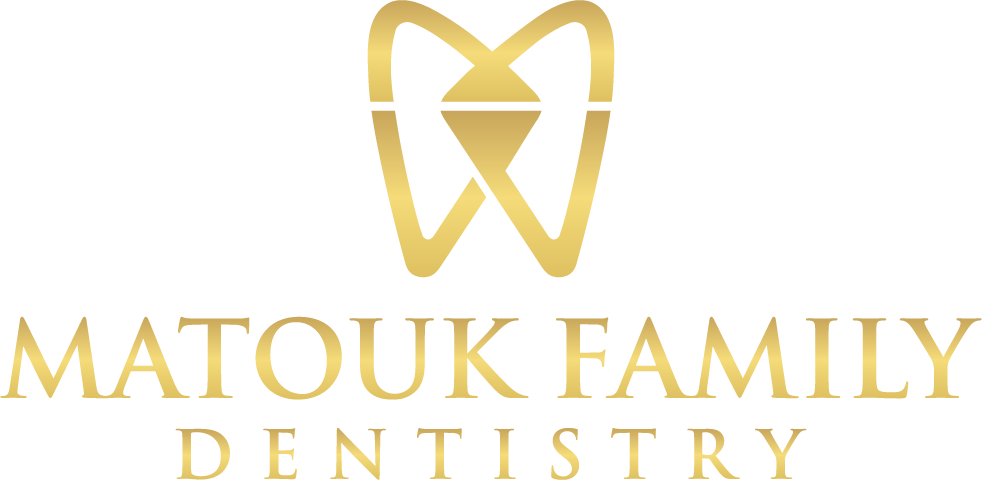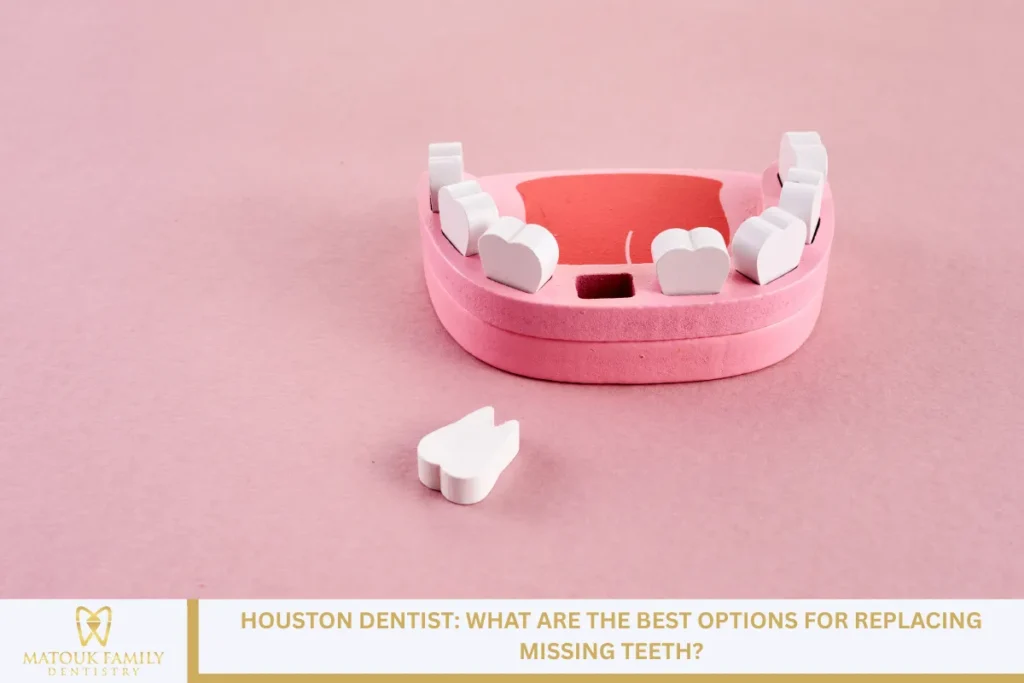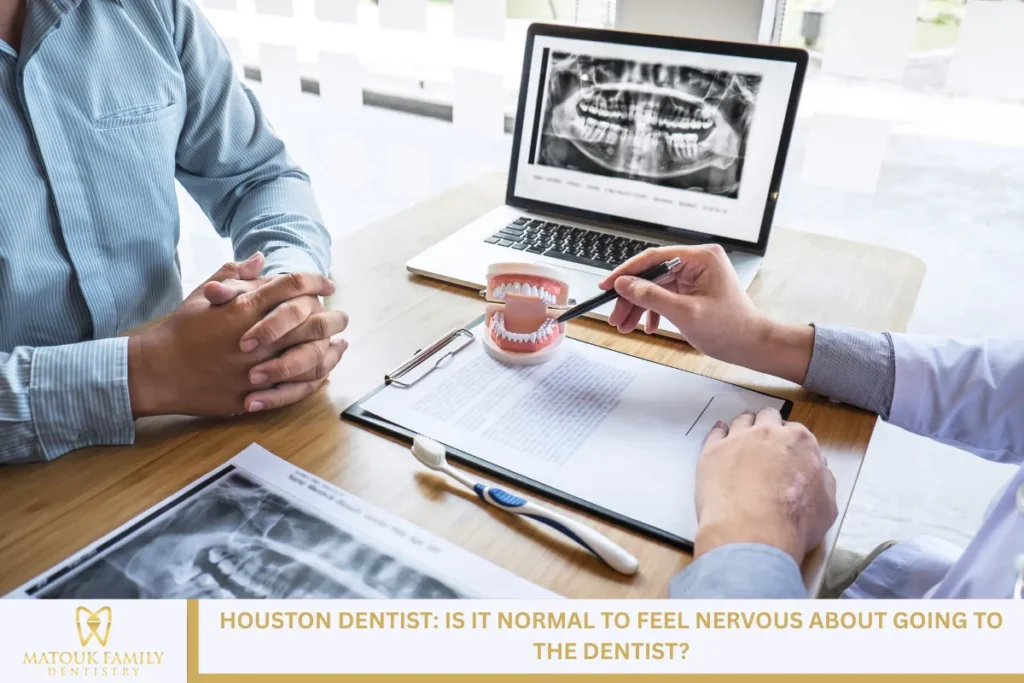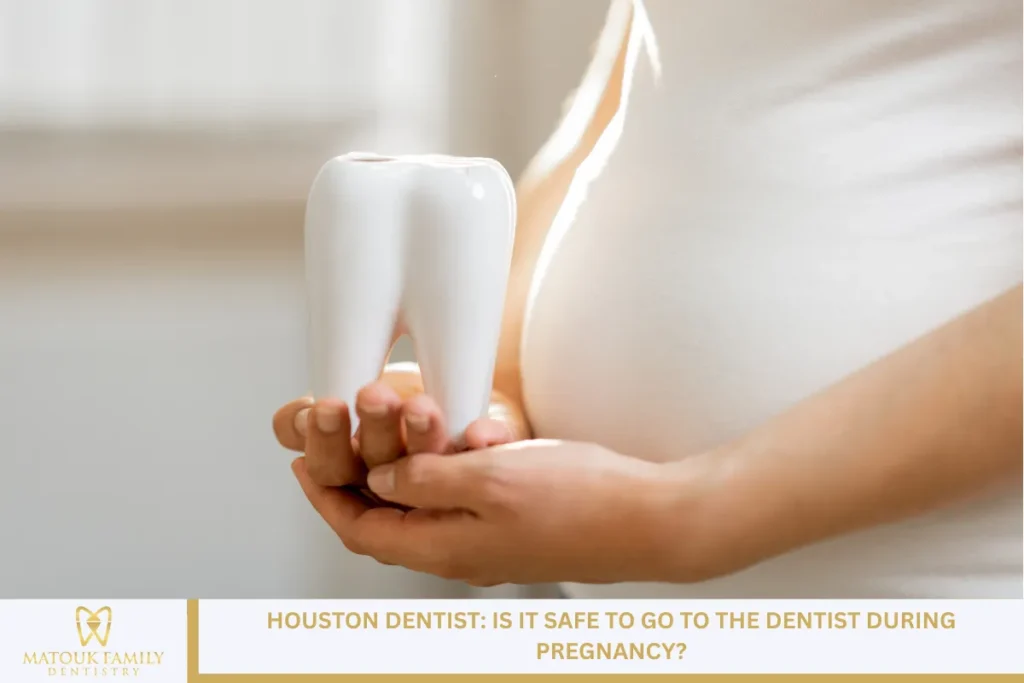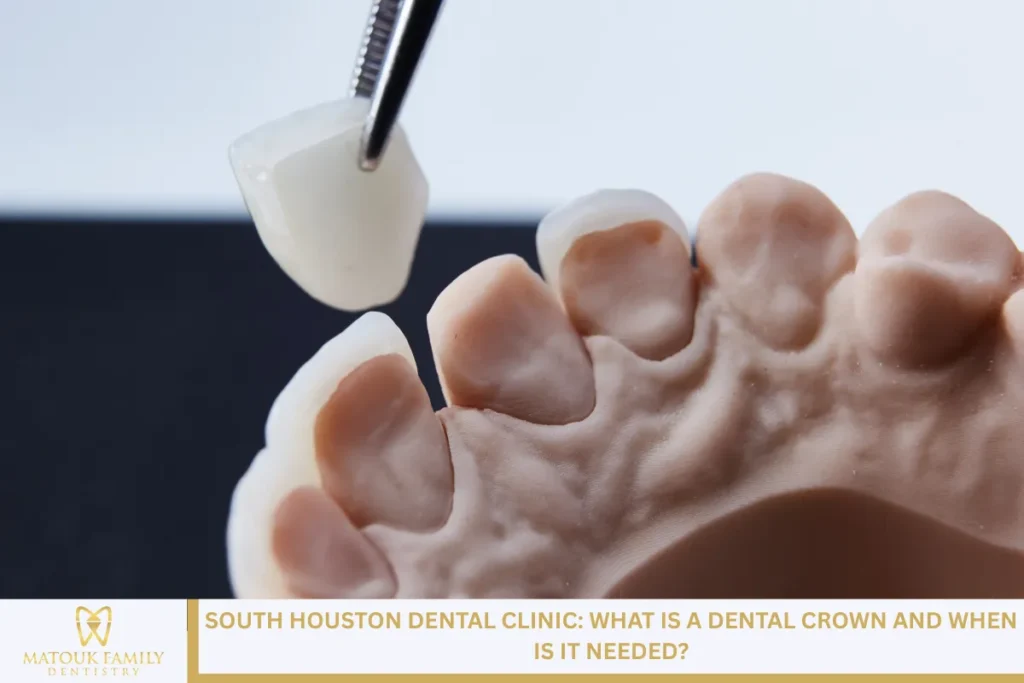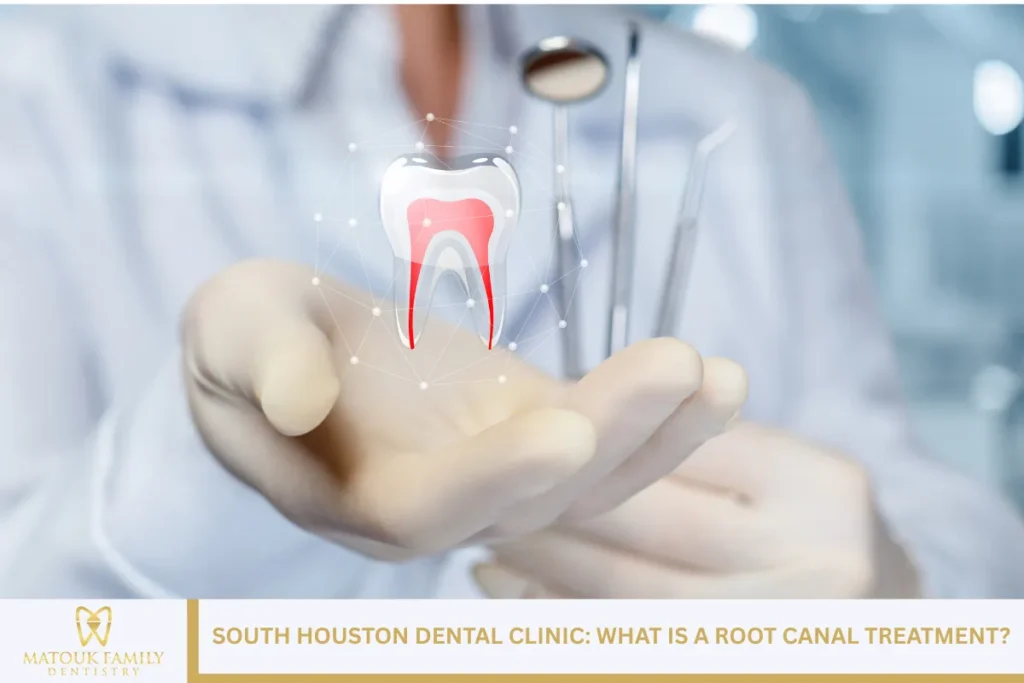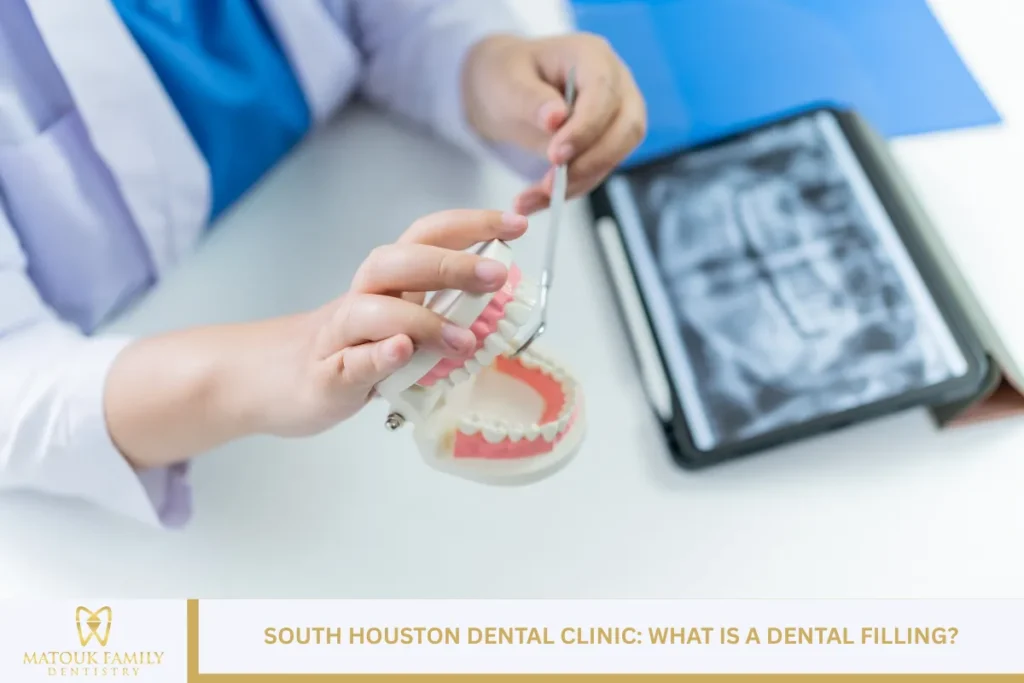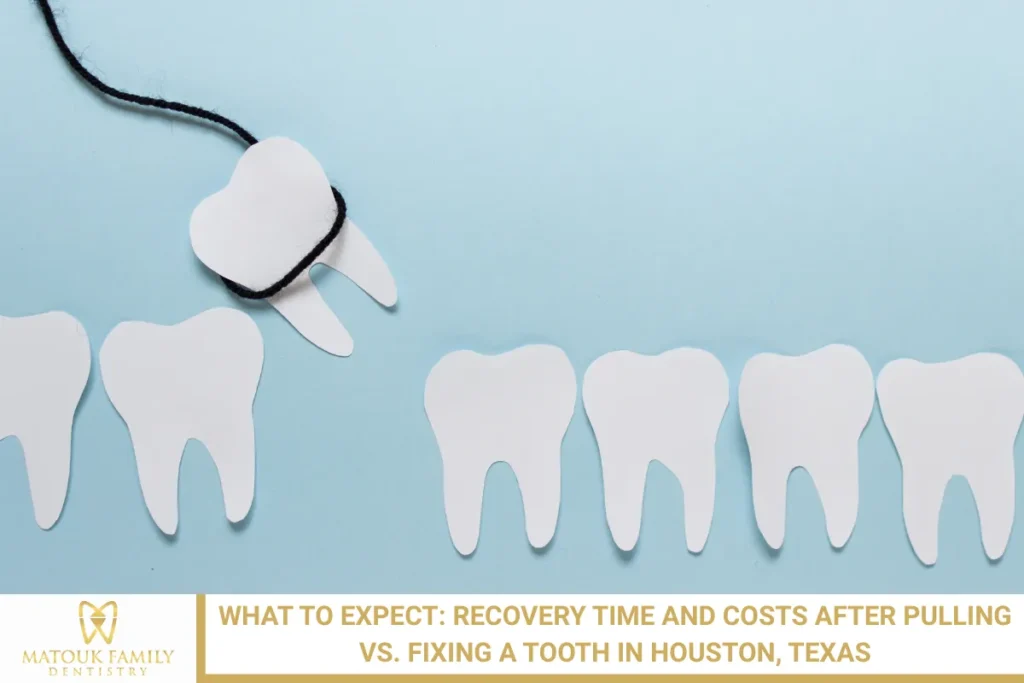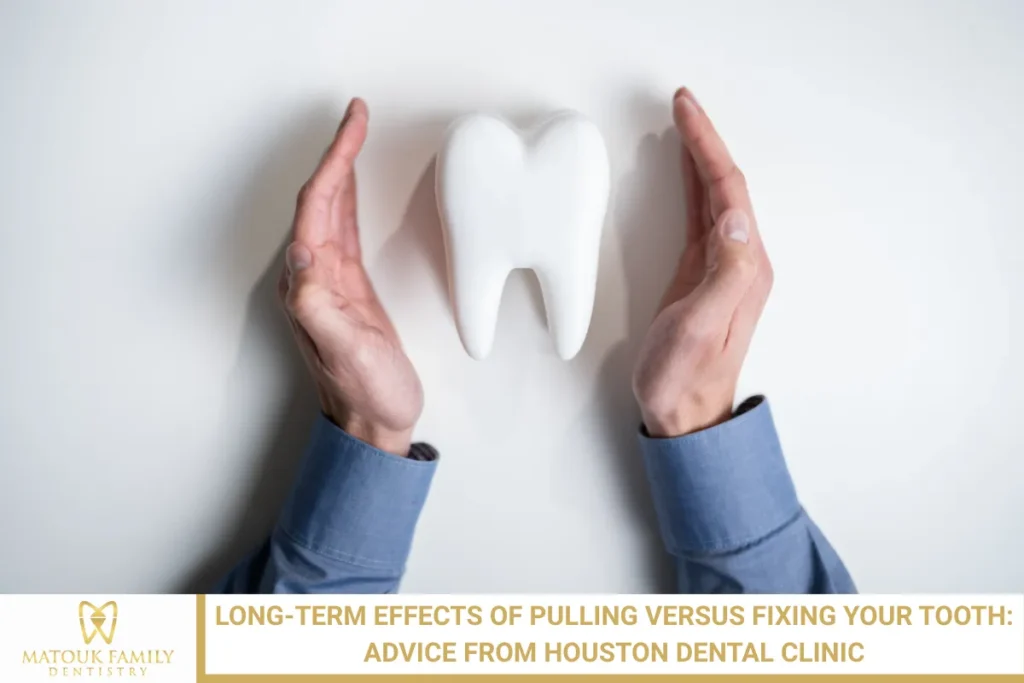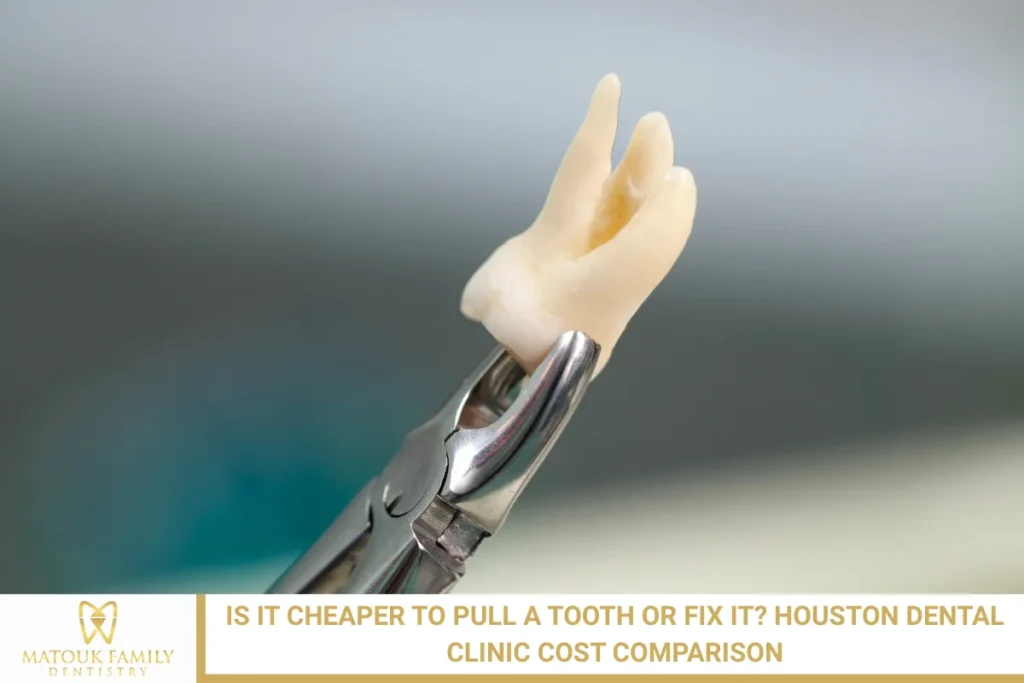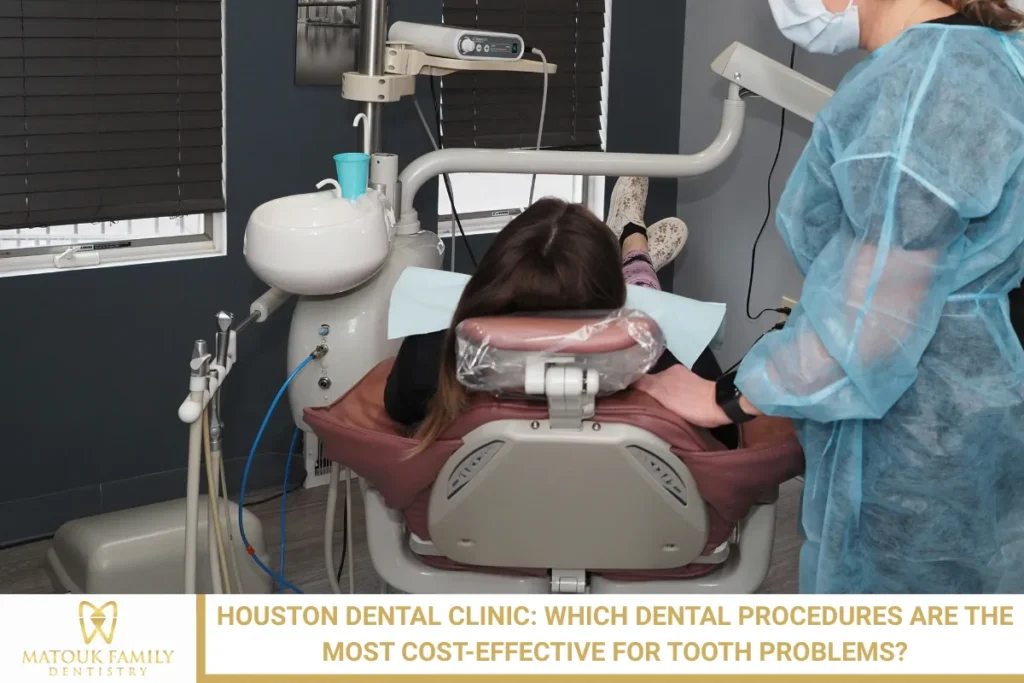Tooth loss affects thousands of individuals each year, and Houston dentists continue to see a steady demand for effective tooth replacement solutions. Whether due to injury, decay, or other dental issues, losing teeth can significantly impact a person’s daily life, affecting their ability to eat, speak, and maintain their overall well-being.
Replacing missing teeth isn’t only about how your smile looks—it’s about bringing back function, preserving oral health, and preventing further problems down the line. This guide walks you through the most reliable and widely used options for tooth replacement, helping you better understand the choices available and how they work. No matter how many teeth you’re missing, there’s a solution designed to restore comfort, confidence, and stability.
Understanding the Impact of Missing Teeth
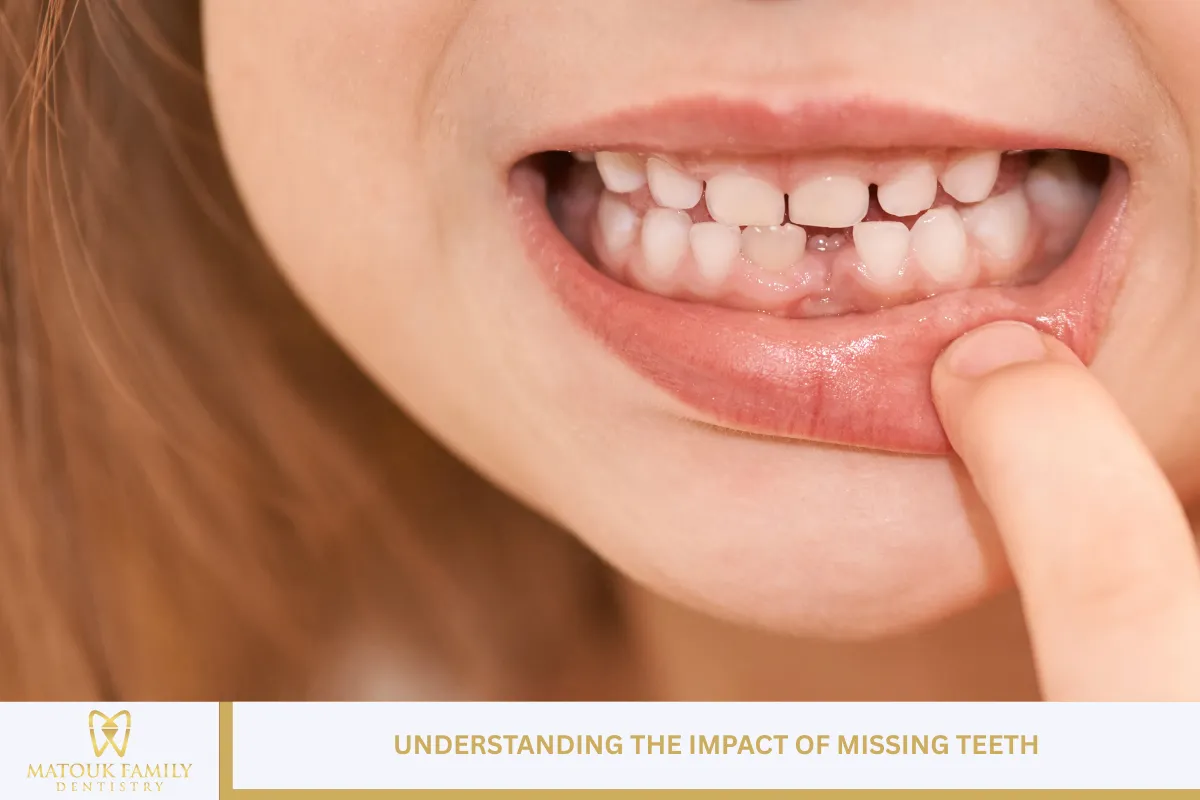
The absence of even a single tooth can lead to a ripple effect of problems within your mouth. It may begin as a small inconvenience, but can escalate into long-term dental and health issues if not addressed promptly.
One of the most significant concerns is bone loss. When a tooth is no longer present, the jawbone in that area lacks stimulation and begins to shrink. This process, known as bone resorption, can weaken the jaw and alter your facial structure, resulting in a sunken appearance over time. Additionally, the teeth surrounding the gap may begin to shift out of alignment. This shifting creates bite problems and makes it harder to clean between teeth, increasing the risk of decay and gum disease.
Beyond physical changes, the loss of teeth can impact emotional well-being. People often feel self-conscious about their smiles and may avoid social settings or speaking in public. Restoring missing teeth helps protect oral structures while also boosting confidence and quality of life.
What Causes Tooth Loss in Houston?
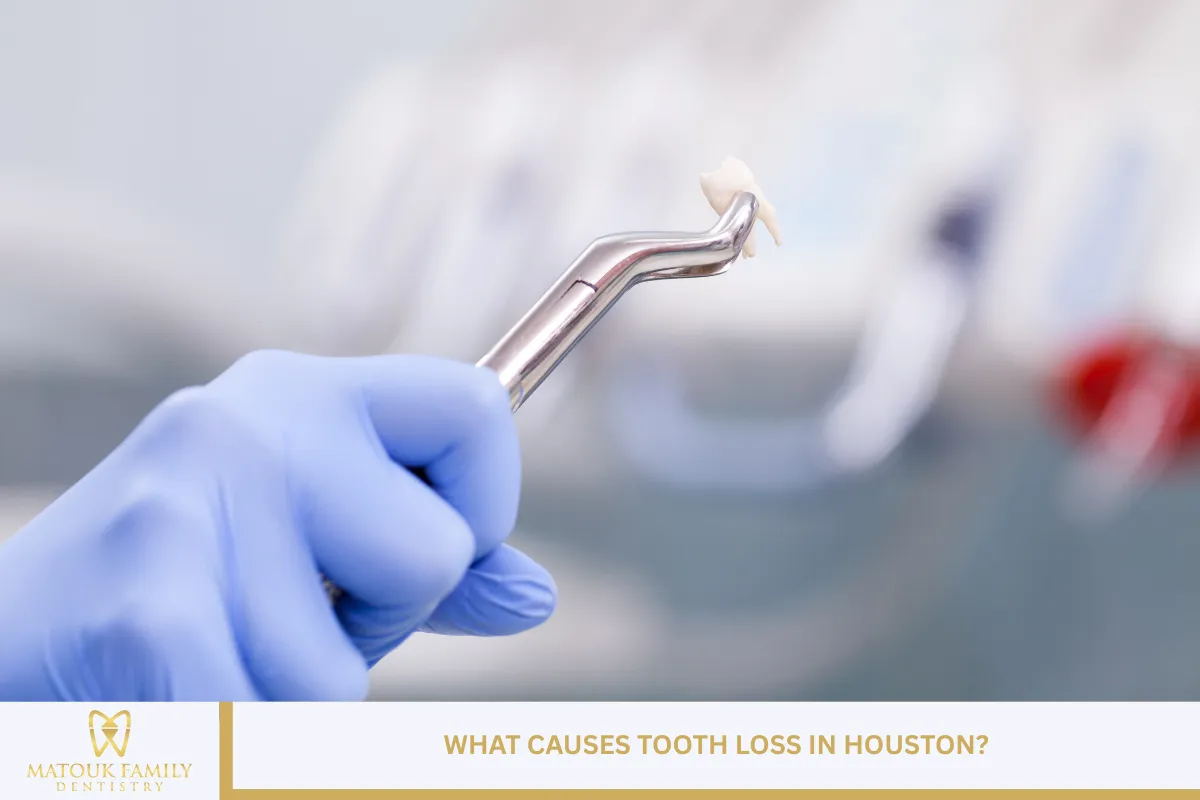
Tooth loss in Houston occurs for various reasons, and understanding the common causes can help prevent future dental problems. The environment, lifestyle, and health patterns in the region all contribute to dental conditions that result in missing teeth.
Tooth decay remains one of the leading causes of dental problems. Cavities that go untreated can cause irreparable damage to the tooth structure. Once decay reaches the root or surrounding bone, extraction is often the only option. Gum disease, especially in its advanced form known as periodontitis, is another significant contributor. It weakens the tissue and bone that support teeth, causing them to loosen over time.
Accidents are also a frequent cause of tooth loss. Whether from sports, vehicle collisions, or falls, trauma to the face can result in immediate or delayed tooth removal. Furthermore, chronic conditions like diabetes and osteoporosis—common across many Houston households—affect bone strength and healing capacity, making dental issues harder to manage. Even poor dental hygiene habits, often influenced by access to care and education, can lead to widespread tooth loss over time.
Why Replacing Missing Teeth Matters
Choosing to replace missing teeth isn’t simply a cosmetic decision; it’s an essential part of maintaining long-term oral and physical health. Without replacement, the space left behind can compromise your ability to chew properly, which may limit dietary choices and impact nutrition. This becomes particularly important when considering foods rich in fiber or protein that require more effort to break down.
Additionally, when teeth are missing, the surrounding teeth must work harder to compensate for the loss. This additional strain can lead to premature wear and increase the likelihood of future tooth damage or jaw discomfort. Uneven pressure distribution can also contribute to headaches and problems in the temporomandibular joint (TMJ).
Speech may also become more difficult, especially when multiple teeth are missing. Certain sounds rely on the positioning of teeth for proper pronunciation. Replacing those teeth restores clarity in communication and contributes to more effective interactions.
Lastly, tooth replacement helps restore self-image. Smiling is a natural response that enhances personal and professional interactions. Restoring missing teeth gives individuals a reason to smile freely and comfortably again.
Top Tooth Replacement Options Available in Houston
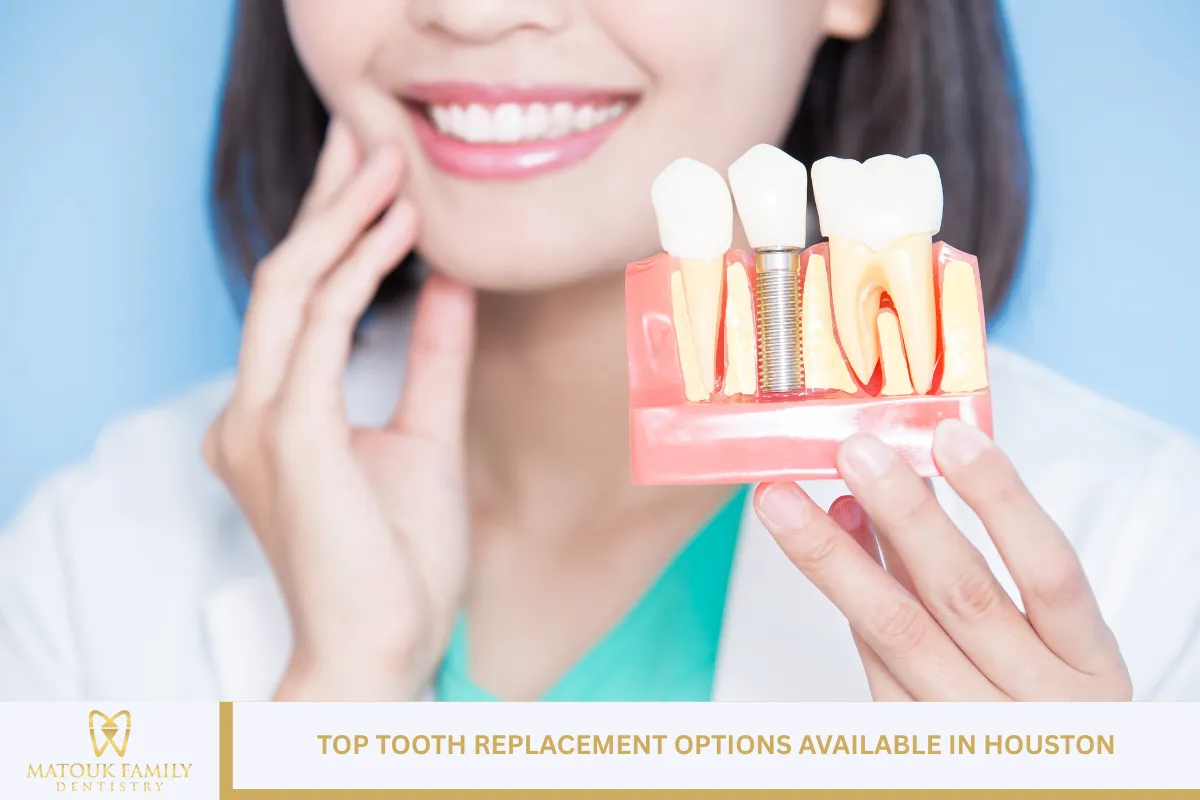
In Houston, dental professionals offer a range of tooth replacement methods to suit different needs and preferences. Each option comes with its own benefits and limitations, depending on oral health, budget, and personal goals.
Dental Implants: A Permanent, Natural-Looking Solution
Dental implants are widely considered the most reliable and long-lasting option for tooth replacement. An implant is a titanium post surgically inserted into the jawbone, acting as a strong foundation for a crown that resembles a natural tooth.
Once the implant integrates with the bone, it provides stability that closely mimics the stability of a real tooth. This integration process, known as osseointegration, is crucial for long-term success. Because the implant replaces both the root and the visible part of the tooth, it offers structural and aesthetic benefits.
Implants are suitable for replacing single teeth or even an entire arch using multiple implants. They are also favored for their durability. With proper care, they can last for decades, making them a cost-effective choice in the long run, despite their higher initial cost.
However, successful implantation requires good bone density. Patients with significant bone loss may need grafting procedures beforehand. Recovery can take several months, but the results are stable and long-lasting.
Dental Bridges: Restoring Function with Adjacent Support
A dental bridge is a prosthetic tooth anchored to the surrounding natural teeth. The process involves preparing the adjacent teeth by reshaping them to hold crowns that support the artificial tooth in the middle.
Bridges are a popular choice for patients who want a non-surgical solution. They restore function and appearance in a relatively short time and are typically more affordable than implants. A bridge can be created and placed within a couple of dental visits, making it an efficient choice.
However, because the process involves altering neighboring teeth, there’s a tradeoff. Those supporting teeth may be weakened over time or become prone to decay if not cleaned properly. Additionally, bridges do not prevent bone loss in the area of the missing tooth because they sit above the gums rather than integrating with the bone.
Despite these limitations, bridges remain a solid solution for many patients seeking quick and functional results.
Dentures: Removable, Custom-Made Replacements
Dentures are removable appliances used to replace one or more missing teeth or a full arch. Modern dentures have come a long way from the bulky, awkward versions of the past. Today, they’re crafted using advanced materials that offer a more natural appearance and comfortable fit.
There are two primary types of dentures: partial and full. Partial dentures are used when some natural teeth remain, while full dentures are made for those who have lost all teeth in an arch.
One of the main advantages of dentures is affordability. They’re often the most cost-effective option, especially for patients with extensive tooth loss. They’re also non-invasive and can be made relatively quickly.
However, dentures may take some time to get used to. They may feel loose or require adhesives to stay in place. Over time, the shape of the jaw can change, necessitating adjustments or replacements.
Dentures must be removed for cleaning and soaked overnight. With proper care, they can last five to ten years and provide significant improvement in function and appearance.
Implant-Supported Dentures: Combining Stability and Affordability
Implant-supported dentures offer a blend of the stability found in implants and the affordability of traditional dentures. They involve placing a few implants into the jaw and attaching a custom denture that snaps into place.
These dentures are more secure than regular ones, minimizing movement during eating or speaking. They also help preserve bone by stimulating the jaw through the implanted posts. Implant-supported dentures can be either fixed or removable, depending on the patient’s preference and treatment plan.
This option works well for individuals who want a more secure fit without investing in individual implants for every missing tooth. It’s also beneficial for those who may have experienced difficulty with loose-fitting traditional dentures.
Factors to Consider When Choosing a Tooth Replacement Option
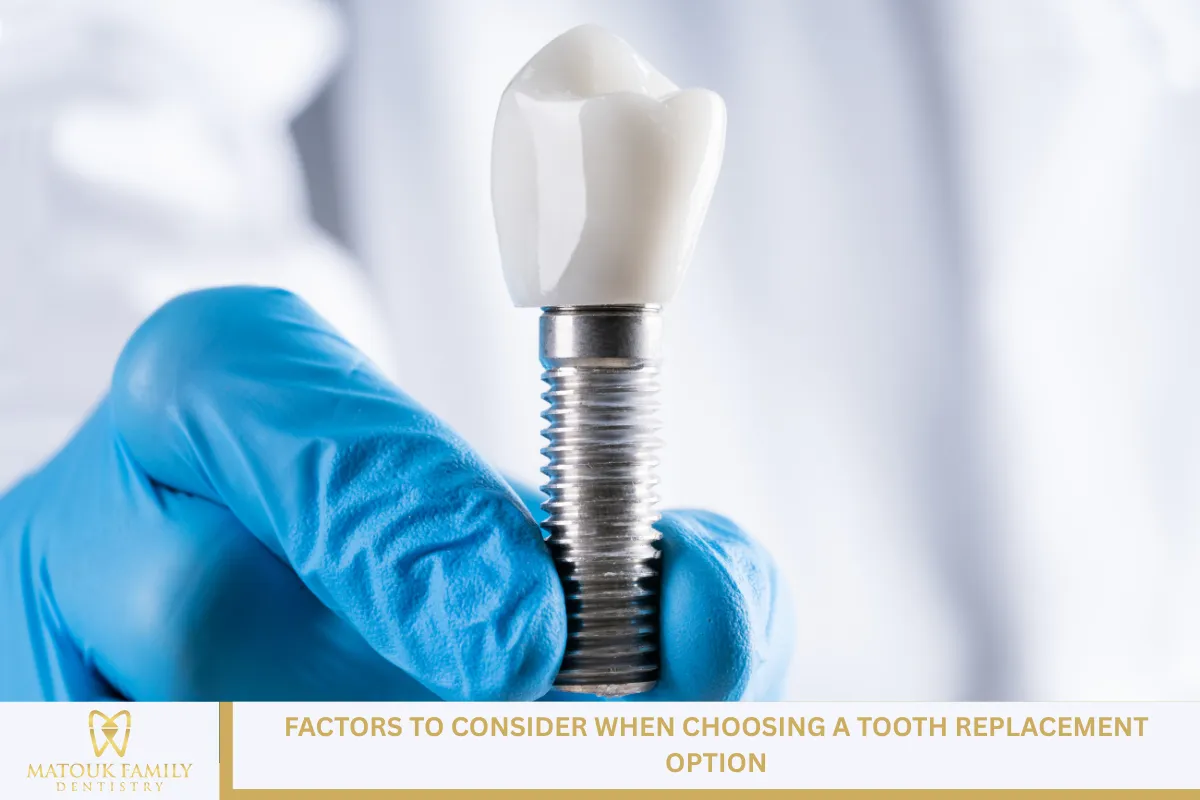
Choosing the right replacement option depends on several important considerations. It’s not just about what’s available but what works best for your individual case.
- Oral Health: Patients with healthy gums and strong jawbones are often ideal candidates for dental implants. In contrast, individuals with gum disease may require treatment before considering replacement.
- Budget: Cost varies widely between options. Dentures are more affordable upfront, while implants offer long-term value.
- Comfort and Lifestyle: Fixed solutions offer greater comfort and reliability, but may require surgery. Removable options require daily maintenance.
- Aesthetic Goals: Some patients prioritize a natural appearance. Implants and bridges often resemble real teeth the most.
- Timeframe: Some treatments require several months, while others can be completed in just a few weeks.
Discussing these factors with a dental provider ensures the chosen solution aligns with personal needs and expectations.
Making the Right Choice for Your Smile
Selecting the best tooth replacement option requires careful consideration and thoughtful deliberation. It’s more than restoring a missing tooth—it’s about protecting long-term oral health, enhancing daily function, and regaining the confidence to smile again.
Take the next step by consulting with a knowledgeable Houston dentist who can evaluate your needs and help you find a solution that aligns with your goals. With the right guidance and treatment, you’ll be on your way to a stronger, healthier, and more confident smile.
Houston Dentist – Matouk Family Dentistry
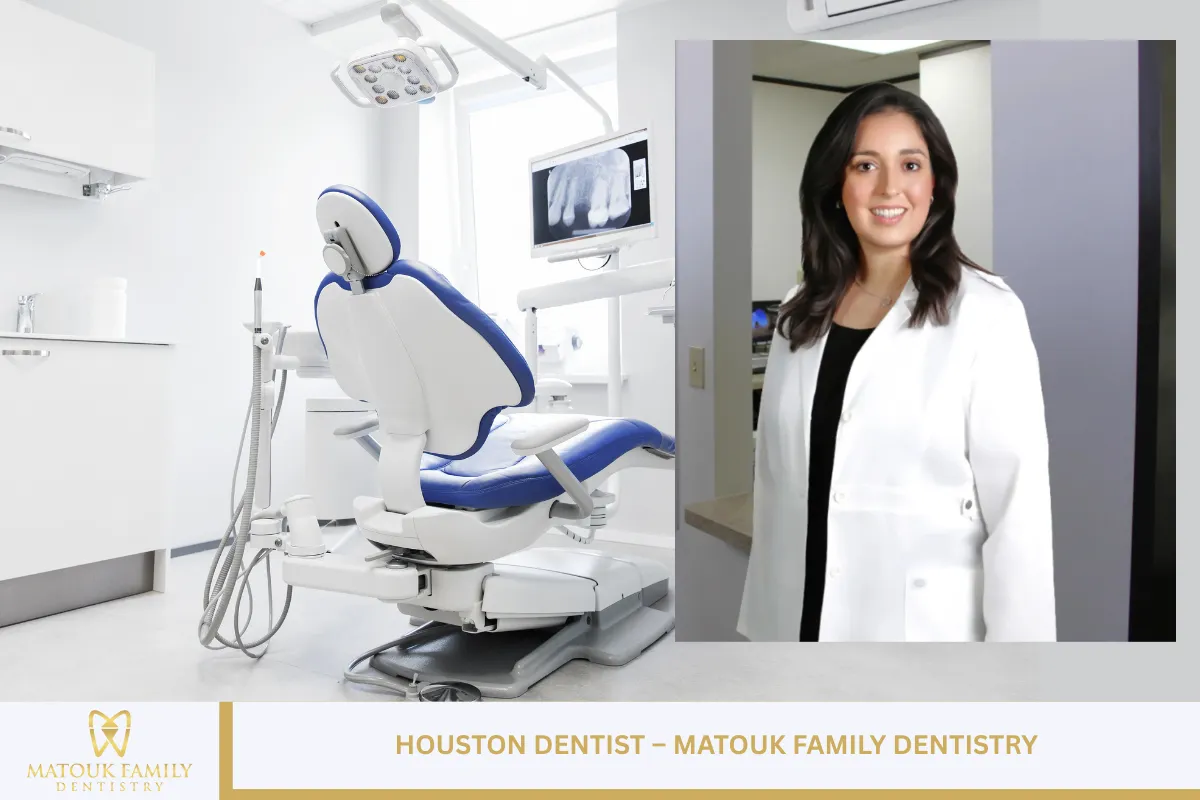
Tooth replacement should be handled with care and experience. At Matouk Family Dentistry, we focus on practical solutions and patient comfort, offering treatments that are designed to restore both function and appearance. From simple repairs to more advanced options, such as implant restoration, we take the time to explain your choices and guide you through each step clearly.
Our office, located just off the Gulf Freeway in Houston, offers a comprehensive range of dental services, including general check-ups, cleanings, crowns, dentures, and more. Every patient is treated with respect and attention to detail. For more information or to schedule a visit, call us at (281) 484-3675. We’re here to help you take the next step toward a healthier smile!
Frequently Asked Questions About Replacing Missing Teeth
1. What is the most durable option for replacing missing teeth?
Dental implants are considered the most durable and long-lasting solution for missing teeth. They are made from biocompatible titanium and are surgically inserted into the jawbone, where they fuse with the bone through a process called osseointegration.
Why implants last the longest:
- They act like natural tooth roots, providing strong support.
- The titanium material is resistant to corrosion and wear.
- With proper care, implants can last 20 years or more—often a lifetime.
What impacts their longevity:
- Good oral hygiene habits (brushing, flossing).
- Regular dental checkups.
- Avoiding tobacco and limiting alcohol.
- Managing chronic conditions like diabetes.
Unlike dentures or bridges, implants don’t rely on other teeth for support. This helps maintain the health of surrounding teeth and bone. While the upfront cost is higher, their durability makes them a cost-effective choice in the long run.
2. How much do tooth replacement options typically cost in Houston?
Tooth replacement costs vary depending on the type of treatment and the number of teeth involved. On average, here’s what you can expect in Houston:
- Dental Implants
- Single tooth: $3,000 – $5,000
- Full mouth: $25,000 – $50,000
- May require additional procedures like bone grafts or extractions
- Dental Bridges
- Traditional bridge: $2,000 – $4,500
- Involves preparing adjacent teeth to support the bridge
- Dentures
- Partial dentures: $600 – $1,500
- Full dentures: $1,000 – $3,000 per arch
- Implant-supported dentures: $4,000 – $8,000
Keep in mind:
- Insurance may cover a portion of the cost.
- Some dental offices offer payment plans or financing.
Obtaining a quote from a local Houston dentist is the best way to understand what’s included and whether additional procedures are necessary.
3. Are dental implants safe and suitable for everyone?
Dental implants are generally very safe, but they aren’t suitable for everyone. A full evaluation by a qualified dentist or oral surgeon is necessary to determine eligibility.
Ideal candidates:
- Healthy gums and sufficient jawbone density
- Non-smokers or those willing to quit
- Free from uncontrolled chronic diseases like diabetes or autoimmune disorders
Conditions that may require caution:
- Severe bone loss (may need grafting)
- Gum disease (must be treated first)
- Recent cancer treatments or radiation in the jaw area
- Poor healing capacity due to certain medications or health conditions
What makes implants safe:
- Made of medical-grade titanium that integrates with bone
- Surgical procedures are performed under sterile, controlled conditions
- Low failure rates (less than 5% nationally)
If you’re unsure whether you’re a good candidate, a consultation and 3D imaging at a dental office in Houston can help determine the next steps.
4. What happens if I don’t replace a missing tooth?
Leaving a missing tooth untreated can cause several long-term issues, both cosmetic and functional. Over time, these problems can lead to more expensive and complex treatments.
Here’s what can happen:
- Bone loss – The jawbone shrinks where the tooth was, weakening facial structure.
- Teeth shifting – Nearby teeth start to move toward the gap, causing misalignment.
- Bite problems – Uneven bite can lead to jaw pain or TMJ issues.
- Difficulty chewing – You may avoid certain foods, which can reduce your nutrition.
- Speech changes – Missing front teeth can affect pronunciation and clarity.
Additional risks:
- Food can get trapped in gaps, leading to decay or gum infections.
- A sunken appearance in the face may develop when multiple teeth are missing.
Timely replacement can prevent these problems and help maintain both appearance and function. A consultation with a local Houston dentist can assess your risks and recommend a suitable replacement.
5. How do I care for dental implants, bridges, and dentures?
Proper care of your tooth replacement is crucial to maintaining its functionality and health for years. Each type of restoration has its own care requirements.
Dental Implants
- Brush twice daily with a soft-bristle toothbrush
- Use floss or interdental brushes around the implant crown
- Rinse with antibacterial mouthwash
- Visit your dentist every 6 months for a check-up
Bridges
- Clean under the bridge using floss threaders or a water flosser
- Brush normally to prevent decay on supporting teeth
- Avoid hard or sticky foods that may damage the bridge
Dentures
- Remove and rinse after meals
- Clean with a soft brush (no toothpaste)
- Soak overnight in a denture-cleaning solution
- Handle with care to avoid bending or breakage
Each type of replacement lasts longer with consistent care. Your Houston dentist can create a customized maintenance plan tailored to your oral health and the restoration you choose.
Read more: Houston Dentist: Is It Normal to Feel Nervous About Going to the Dentist?
